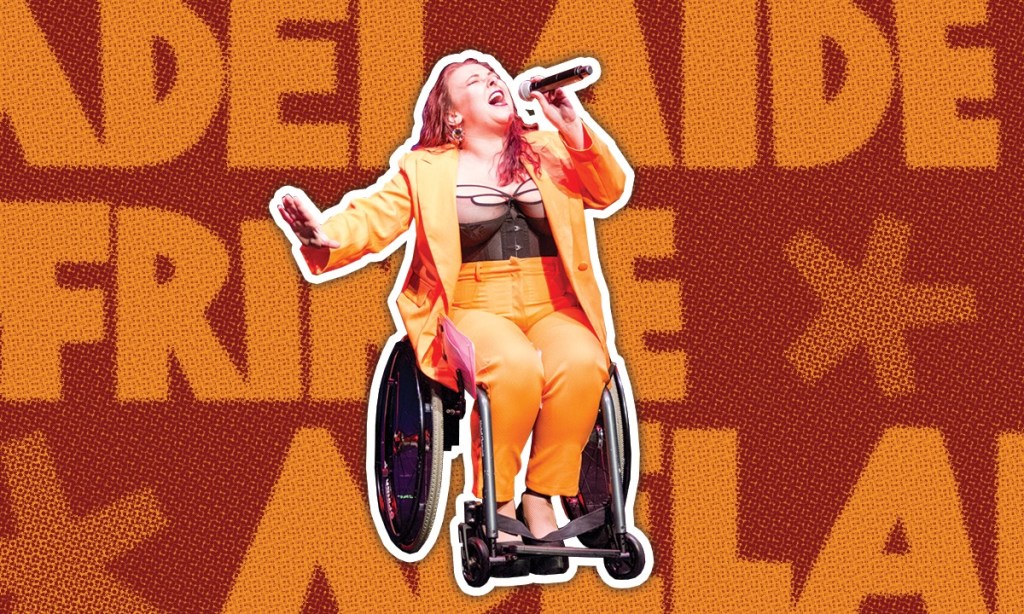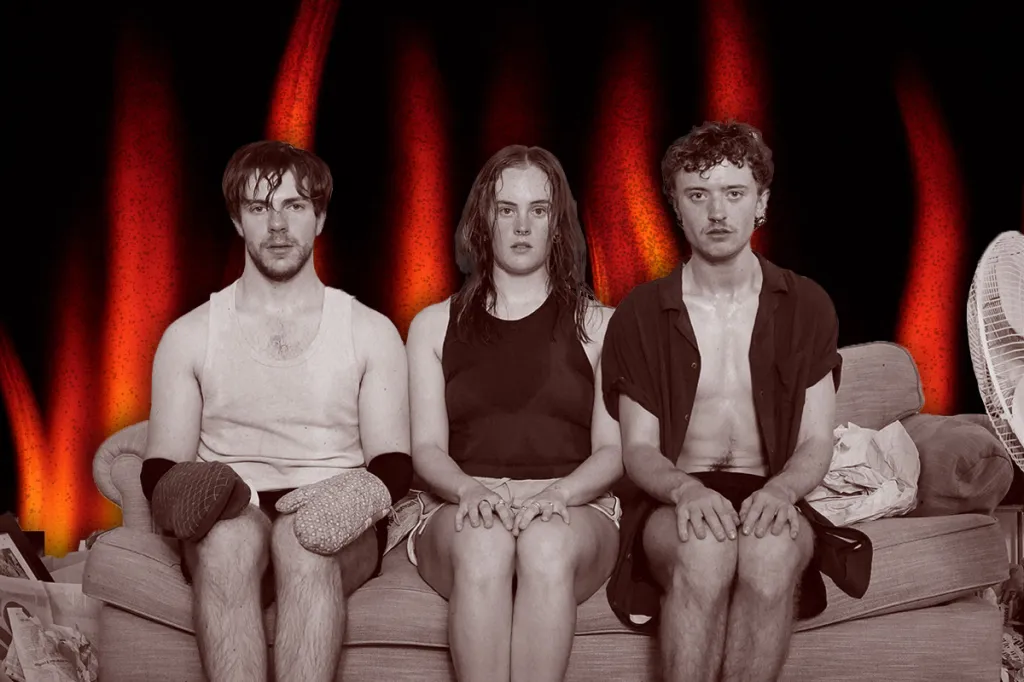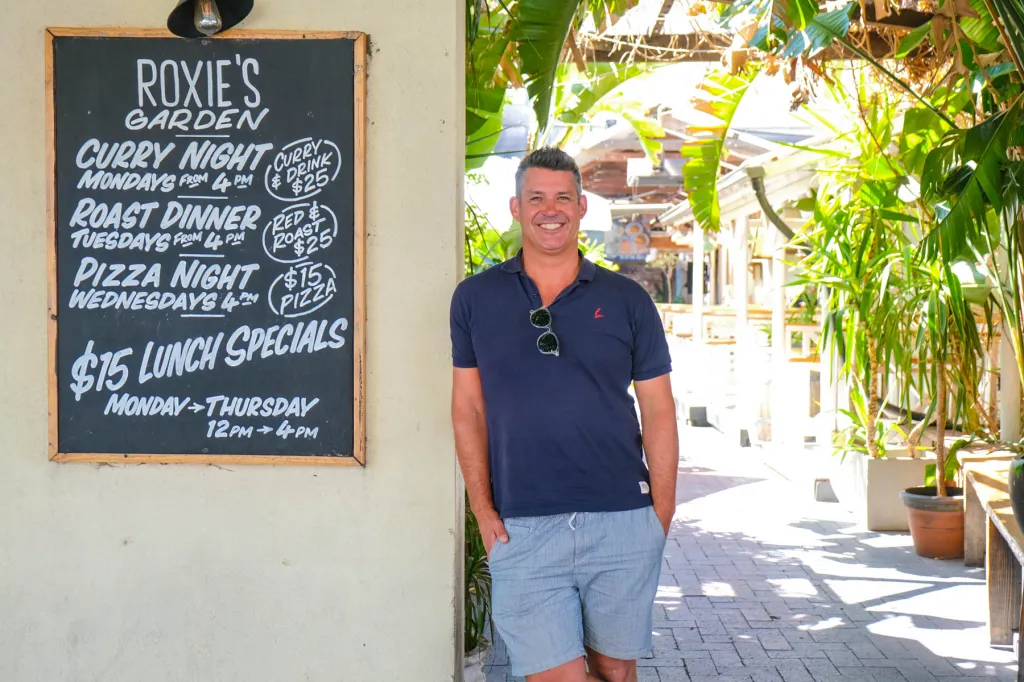Why an accessible Fringe is good for everyone

CityMag sat down with access consultant Jacqueline Tedmanson and the Adelaide Fringe to understand what accessibility really looks like.
Jacqueline Tedmanson, an access consultant and disability advocate, has seen many instances where venues claim to be accessible but haven’t lived up to their statement.
“Well, this has happened a lot more times than I would like to have existed in the world,” Jacqueline says as a disabled person. “And I’m sure every disabled person has a million stories like it.
“A lot of the time, I think people’s understanding of what an access provision is defined as or categorised as is not necessarily accurate.
“People often have this kind of good enough mentality or close enough mentality and in terms of disability access, I mean, the regulations we have are not even necessarily good enough or close enough.
“So when you’re not even meeting those minimum standard regulations, I know it looks like ‘oh, we have an accessible toilet’, but it’s just a slightly large cubicle you’re using as a storage room. Or we might have a lift to the venue, but we won’t necessarily be able to navigate through the venue with a bulky mobility aid.”

Diana Divine (Jacqueline’s stage name) performing in ‘Singin in the Pain’. This picture: Starkiller Kreations.
Jacqueline says a clear display of a venue’s access notes – both what the offer and don’t offer in terms of accessibilty – is essential.
“I’m a lot more inclined to give a punt to new places that are really clear about their access because I feel like if they’re clear about it, they’ve taken that time to reflect on it and be neutral about it,” Jacqueline says.
“And I feel like the aim of displaying the access notes is much clearer when there’s that aspect of honesty and the acknowledgement of access downfalls.
“I am more inclined to feel like the venue is misleading me when they give me like ‘everything is fully accessible’ kind of spiel.”
According to the Adelaide Fringe, 164 shows are offering access provisions compared to 45 shows in 2019.
“I have really noticed a marked improvement in terms of both the parameters that are given to venues to define their accessibility, and then also the education given to presenters and artists around the potential for their own accessible practices,” Jacqueline says, as a Fringe show producer and peformer as well.
You might like
“So there’s a lot of emphasis put on, you know, ‘have you considered a relaxed session or Auslan interpretation?’ And that felt to be a really integrated part of the registration process.
“I have definitely noticed a slow increase over the years and then I would say the past year or two has been exponential and really heartening as a disabled producer and audience member.”
Tara MacLeod, executive director, operation and finance of the Adelaide Fringe, says the Fringe prides itself on remaining open to the broad spectrum of accessibility.
As an open-access festival, the Fringe doesn’t run any of the venues which Tara believes “sets us apart from other festivals”
“But we have a platform in place that allows venues when they’re registering to make sure that they are as accessible as possible through our artists registration system called AVR,” Tara says.
“We have several resources available through AVR that artists and venues can access, which talks to accessibility and what things they can do to make their venue and their show more accessible.
“Those resources are the result of working within the accessibility space with our consultants.”

Diana Divine. This picture: Urban Safari Photography.
Tara says the “backbone of how Fringe operates” is within the Sustainability Access Plan, that launched in 2022. This was responsible for the Disability Inclusion Action Plan (DIAP) which includes goals regarding all aspects of accessibility.
“In late 2023, we launched [DIAP], but we now have an external committee that sits over that action plan, as well as an internal committee,” Tara says.
“So it’s about getting the support and guidance from various different people from different areas of life and experience and business to feed in and create advocacy and support and give us knowledge and guidance around the space and our action plan.
“And that feeds into the internal committee obviously, which is where all the stuff happens: all of the things that make fringe accessible.”
Tara says these accessibility practices include: available Auslan courses for staff, disability access training, complementary companion cards, an online booking system or booking system via phone call, trained staff in access awareness, venue access videos, trained support in hidden disability sunflower wearers and set quiet spaces.
Also, six venues opted in for disability awareness training in 2024, compared to three venues in 2023. Tara was unable to provide statistics for years before 2023.
Tara says the Fringe is aware of its influence as such a large festival and wants to use this privilege to represent people in marginalised communities.
“Given the size of Fringe and the influence that we have, we’ve got an obligation to make sure that we’re listening to as many people as possible, from as many backgrounds as possible and we’ll continue to do that as we evolve the inclusion plan through the next few years,” Tara says.

GOUD during Fringe time. This picture: Andre Castellucci.
This is why the Fringe is “in so many conversations”.
Subscribe for updates
“We are having conversations at federal government level down to state level to the consultants that we work with, and the audience member who wants to go to Fringe but doesn’t feel like they can because there are barriers there,” Tara says.
“We have the opportunity and the obligation to make sure that those barriers are removed, and we can listen and we can bring people together.”
Jacqueline says a growth in accessibility provisions for this year’s Adelaide Fringe is “exciting”.
“I am so much more willing to give shows a chance when I know what I’m walking into — it’s that informed decision once again, we are willing to take risks without access and everything if we can, we just need to know exactly how big those risks are,” Jacqueline says.
“I really love how Adelaide Fringe has empowered both venues and presenters to be able to provide that information without necessarily feeling like it is a judgement on their overall virtue.”
Jacqueline says the benefits include producers as well.
“In a professional [way], I am going to have more performance opportunities, I’m going to have more venues I can bring my shows to, our audiences are going to be more aware, audiences that are from the non-disabled population are going to come in and have a stronger basic understanding of our needs,” Jacqueline says.
“I think it just really opens up a lot of conversations and prompts a lot of internal thought and reflection from both audiences and venue managers.
“I see it all as progress and fantastic.”

CONFESSION night club. This picture: supplied.
Out of the many Fringe venues available, Jacqueline highlights two that don’t “necessarily [have] perfect access, but perfect practises behind being as accessible as possible”.
“I personally adore My Lover Cindi – I am a bit biased because I did help on the access consultation when they moved to the new site – but I absolutely love it there,” Jacqueline says.
“I find it incredibly accessible, I really like once again, how they are really transparent about the access downfalls.
“They have put in so much effort to add access, but they could very easily use that as kind of a distraction and say ‘look at all the good things we’ve done and don’t look at the downfalls that we have’, but they don’t. It’s really authentic and frankly, just useful. It’s practical for people like me.”
CONFESSION in Port Adelaide is another Fringe venue Jacqueline commends for its accessibility provisions.
“They designed the entire thing with access in mind… there’s loads of amazing access precautions there: it’s all ramped entry, the bar has Braille menus, there is a designated access space for disabled patrons,” Jacqueline says.
“Just things like that, where it’s like a little bit of consideration really goes a long way. You’re not necessarily changing like the hard building infrastructure when you’re increasing access.”
Jacqueline says that not only are the accessible provisions at My Lover Cindi and Confession positive physically, but these two venues have this mindset embedded in their culture.
“A lot of the time increasing access can also just be a cultural thing. What I really like about both Confession and [My Lover] Cindi’s is it’s really baked into the core of the mission statements as a venue,” Jacqueline says.
“[These venues are] not just trying to get patrons in to drink and dance, we actively want to create this as a safe and exciting hub for disabled patrons.
“And anyone who is coming here, whether disabled or not, comes in with that kind of understanding.”

